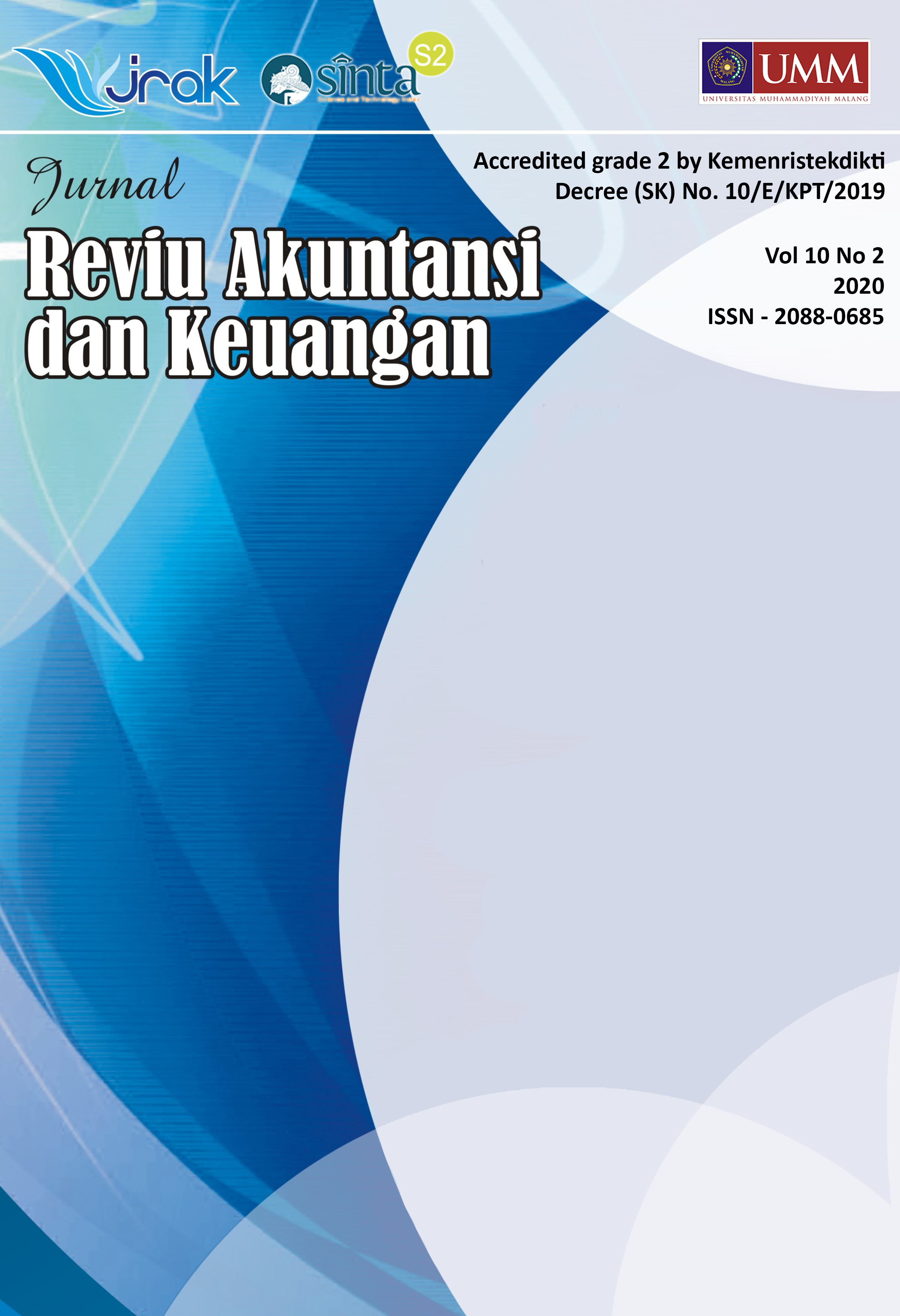A Study of Whistleblowing Intentions in Government Sector
DOI:
https://doi.org/10.22219/jrak.v10i2.10269Keywords:
Organizational Climate, Retaliation, The Level of Wrongdoing Seriousness, The Status of Wrongdoers, Whistleblowing IntentionsAbstract
This study aims to examine the effect of retaliation, status of wrongdoers, the level of wrongdoing seriousness, and organizational climate on whistleblowing intentions. The population in this study were Civil Servants (PNS) who work in the financial section of the Aceh Work Unit (SKPA) of 231 respondents. The data used in this study is primary data collected through a questionnaire survey. Statistical testing used in this study is multiple linear regression analysis with the help of the SPSS 20 application. The results of this study indicate that the retaliation and status of wrongdoers have a negative and significant effect on whistleblowing intentions, while the level of wrongdoing seriousness and organizational climate positively and significantly affect whistleblowing intentions. The contribution of this research is to provide an understanding to the entire State Civil Apparatus (ASN) to dare to report acts of fraud in the government environment, and to implement a whistleblowing system in order to reduce the level of fraud and corruption cases in Indonesia.
Downloads
Downloads
Published
Issue
Section
License

Jurnal Reviu Akuntansi dan Keuangan is licensed under a Creative Commons Attribution-NonCommercial-ShareAlike 4.0 International License.
Authors who publish with this journal agree to the following terms:
- Authors retain copyright and grant the journal right of first publication with the work simultaneously licensed under a Creative Commons Attribution-NonCommercial-ShareAlike 4.0 International License that allows others to share the work with an acknowledgement of the work's authorship and initial publication in this journal.
- Authors are able to enter into separate, additional contractual arrangements for the non-exclusive distribution of the journal's published version of the work (e.g., post it to an institutional repository or publish it in a book), with an acknowledgement of its initial publication in this journal.
- Authors are permitted and encouraged to post their work online (e.g., in institutional repositories or on their website) prior to and during the submission process, as it can lead to productive exchanges, as well as earlier and greater citation of published work (See The Effect of Open Access).










